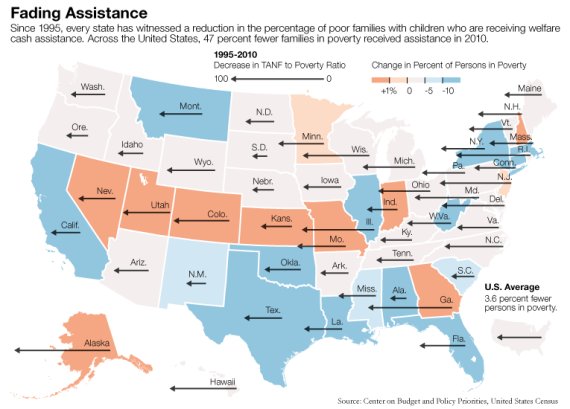Chapter 5
Poverty
Who
becomes poor? One familiar answer is that people who are unlucky enough
to be born to poor parents become poor. There is some truth to this.
Whites, the focus of our analyses in the chapters of Part II, who grew
up in the worst 5 percent of socioeconomic circumstances are eight times
more likely to fall below the poverty line than those growing up in the
top 5 percent of socioeconomic circumstances. But low intelligence is a
stronger precursor of poverty than low socioeconomic background. Whites
with IQs in the bottom 5 percent of the distribution of cognitive
ability are fifteen times more likely to be poor than those with IQs in
the top 5 percent.
IQ can mask a lot of other problems as well, for example poor people might have poor nutrition that restricts intelligence, also a lack of motivation to think in terms of symbolic IQ tests because of education problems. IQ tests have a more subtle problem in that they fall on a normal curve, the questions are selected for this. They then test for random ability, the questions are usually independent of each other so solving one doesn't help a person to solve the next one. However Iv-B thinking is more in roots and branches where it is more important to think in chains. For example a programmer might have high random intelligence (RI) which helps him to do each part of a program, however he might have low chaotic intelligence (CI) which helps him to make chains of programming code that might have to be thousands of lines long to work. Many programmers have this problem, they manage to complete a course at school but cannot code on large projects. This chaotic intelligence or CI is innovative or counter innovative, B people who are inventors might use this to build new ideas from older ones like the roots of a plant looks for new nutrients. A farmer or miner might have this chaotic intelligence where he can pursue a goal tactically discarding ideas that don't work until he finds a new system that works.
Random intelligence or RI is more suited to team players because each piece of a team job is independent of the others but tending towards a conventional or normal outcome. A union worker might have this RI where he can work as a plumber for example in building a house, then a carpenter, an electrician, a tiler, a concreter, etc also work as teams to fit their work in with the plumber to build a new house. These homes tend to be highly normalized, the RI of the workers is towards doing a normal job so the whole property is resistant to collapse. CI or chaotic intelligence would be like one person building a whole house, if they made some critical mistakes then the whole property might collapse, they would have more chance however of coming up with a new house design.
This is probably why so many talented programmers have been found since the rise of computing, many of them amateurs, often also those with poor grades or little desire to do schoolwork of the kind that denotes high IQ scores. To create a CIQ or chaotic intelligence quotient is beyond the scope of this article, but basically questions need to build on each other like IV branches or B roots. A person doing the test might solve one part which leads to one or more other parts as branches that are more difficult. At some point he might fail to go to higher branches. This is like many games where people can excel even when poor students with this CIQ, they might complete levels that get harder such as in warcraft and continue to go higher. Instead CIQ might be like B, a person might have to be tested in research by looking for information, like treasures in some games that unlock new parts of the game. The allows the roots structure to grow, it might measure for example a person's ability to innovate or invent something new while Iv CIQ would measure a person's ability to exploit new ideas as counter innovations.
How
does each of these causes of poverty look when the other is held
constant? Or to put it another way: If you have to choose, is it better
to be born smart or rich? The answer is unequivocally "smart." A white
youth reared in a home in which the parent or parents were chronically
unemployed, worked at only the most menial of jobs, and had not gotten
past ninth grade, but of just average intelligence—an IQ of 100—has
nearly a 90 percent chance of being out of poverty by his or her early
30s. Conversely, a white youth born to a solid middle-class family but
with an IQ equivalently below average faces a much higher risk of
poverty, despite his more fortunate background.
When
the picture is complicated by adding the effects of sex, marital
status, and years of education, intelligence remains more important than
any of them, with marital status running a close second. Among people
who are both smart and well educated, the risk of poverty approaches
zero. But it should also be noted that young white adults who marry are
seldom in poverty, even if they are below average in intelligence or
education. Even in these more complicated analyses, low IQ continues to
be a much stronger precursor of poverty than the socioeconomic
circumstances in which people grow up.


